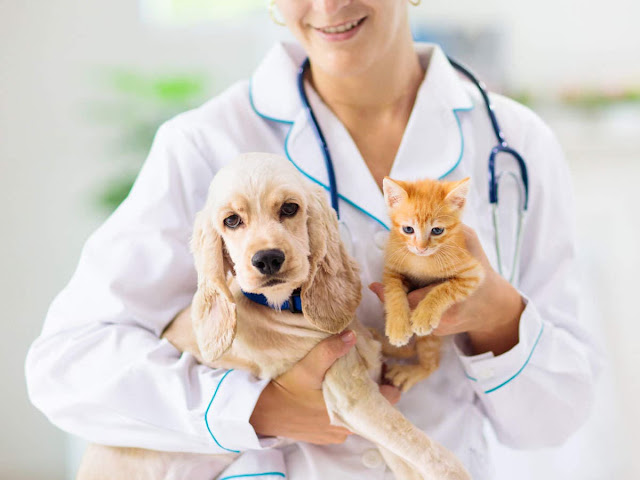
Pet ownership brings immense joy and companionship, but it also comes with responsibilities. One of the key aspects of responsible pet ownership is ensuring the well-being and health of our beloved furry friends. However, veterinary care costs have been rising steadily over the years, making it difficult for pet owners to afford necessary medical treatments and procedures. This is where pet insurance plays a vital role. In this article, we will explore the concept of pet insurance, how it works, its benefits, considerations, and alternatives, empowering pet owners to make informed decisions about protecting their pets' health.
What is Pet Insurance?
Pet insurance is a specialized insurance product designed to cover the costs associated with veterinary care for your pets. Just like health insurance for humans, pet insurance provides financial protection in case your pet requires medical treatment or emergency care. Pet insurance policies typically offer different coverage options, including accident-only, illness-only, and comprehensive coverage. This allows pet owners to choose the level of protection that suits their needs and budget.
How Does Pet Insurance Work?
Obtaining pet insurance is a relatively straightforward process. Pet owners can choose from various insurance providers and policy options. When a pet requires veterinary care, the owner pays the veterinarian directly and then submits a claim to the insurance company. The insurance company reviews the claim, and if it meets the policy's terms and conditions, the pet owner is reimbursed for the eligible expenses.
The premium costs for pet insurance depend on several factors, including the pet's age, breed, and any pre-existing conditions. Generally, younger pets and those without pre-existing conditions are more likely to have lower premiums. Pet insurance policies often have deductibles, which are the amount the pet owner must pay before the insurance coverage kicks in. Higher deductibles usually result in lower premium costs.
Benefits of Pet Insurance
Pet insurance offers several significant benefits to pet owners. Firstly, it provides financial security and peace of mind. Unexpected accidents or illnesses can result in hefty veterinary bills that may strain the owner's finances. With pet insurance, the financial burden is significantly reduced, allowing pet owners to focus on providing the best care for their pets without worrying about the costs.
Furthermore, pet insurance helps pet owners maintain a predictable budget. Rather than facing unpredictable veterinary expenses, knowing that the majority of eligible costs will be covered by insurance allows for better financial planning. Pet insurance can also facilitate access to higher quality veterinary care, as financial constraints are no longer a barrier to receiving necessary treatments.
Many pet insurance providers offer additional benefits, such as coverage for alternative therapies, behavioral consultations, or even advertising rewards for lost pets. These added features further enhance the value of pet insurance and contribute to the overall well-being of both pets and their owners.
Considerations and Limitations
While pet insurance provides valuable coverage, it is essential to be aware of its limitations and exclusions. Pre-existing conditions, which are medical conditions that existed before obtaining the policy, are often excluded from coverage. Some policies may also have waiting periods before specific conditions are covered. It is crucial for pet owners to carefully review the terms, conditions, and exclusions of any pet insurance policy before making a decision.
Choosing the right pet insurance provider and policy is crucial. It is advisable to compare multiple providers, considering factors such as coverage options, reimbursement rates, customer reviews, and the provider's reputation. Additionally, understanding the policy's limitations, such as breed-specific conditions or hereditary diseases, is vital to ensure the policy aligns with your pet's specific needs.
Alternatives to Pet Insurance
While pet insurance is a popular option for many pet owners, there are alternative methods of financial planning for pet healthcare. One alternative is setting up a dedicated savings account specifically for your pet's medical expenses. By regularly contributing to this account, you can accumulate funds that can be used when your pet requires veterinary care. This approach requires discipline and a proactive savings mindset but can provide financial security without the need for insurance premiums.
Another option is exploring credit options, such as pet-specific credit cards or veterinary payment plans. These allow you to spread out the cost of veterinary care over time, often with low or no interest rates. However, it's important to understand the terms and conditions of these credit options, including any potential impact on your credit score.
It's worth noting that while these alternatives may provide some financial flexibility, they do not offer the same comprehensive coverage and peace of mind as pet insurance. The potential drawbacks include the risk of inadequate savings for high-cost treatments or emergency situations, or the burden of debt if relying heavily on credit options.
Conclusion
Pet insurance is an invaluable tool for protecting your pets and ensuring their health and well-being. By providing financial security, budget predictability, and access to quality veterinary care, pet insurance offers peace of mind for pet owners. It is essential to carefully review policy terms, conditions, and exclusions to select the right coverage for your pet's needs.
While alternatives like savings accounts or credit options exist, they may not offer the same level of comprehensive coverage as pet insurance. Pet owners should evaluate their options, considering factors such as their pet's age, breed, and pre-existing conditions, as well as their own financial situation and risk tolerance.








